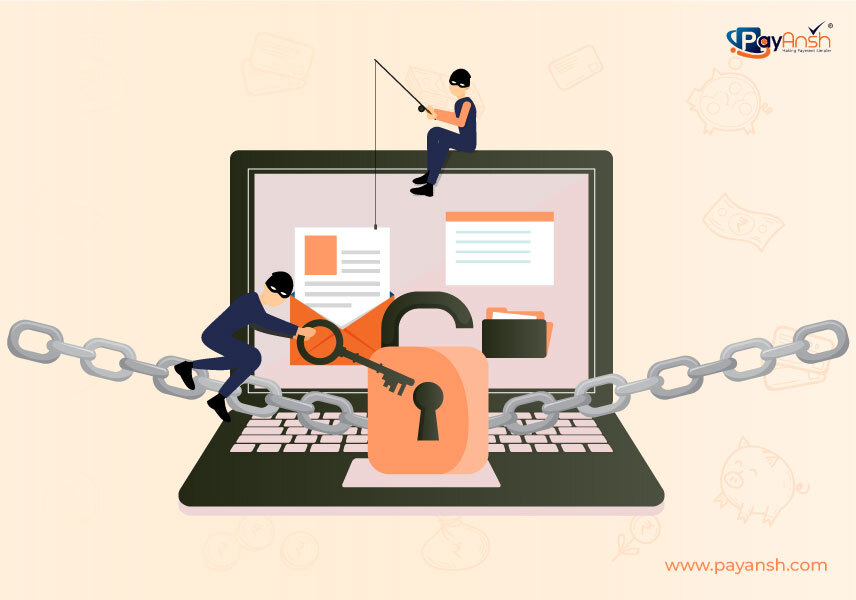Whenever any household buys s
January 01, 2023How to limit the risks of chargeback fraud?

What is a Chargeback?
In the realm of credit card transactions, a chargeback is a
dispute procedure that a cardholder starts to cancel a purchase and get their
money back. The money for a specific transaction is refunded to the
cardholder's account when a chargeback happens, and the merchant that accepted
the payment is also charged for the same amount.
Chargebacks are frequently used as a technique for
protecting consumers against unauthorised transactions, fraud, invoicing
mistakes, and disagreements with the merchant on the calibre of the products or
services offered. Through the bank or financial institution that issued their
credit card, the cardholder may submit a chargeback request.
What is the reason for Chargeback?
Non-receipt of goods or services: Sometimes
people make online payments but don’t get any update or receive the product so
they seek this method to get back what they paid. A cardholder may seek a
chargeback if they pay for an item or service but don't get it or it doesn't
fit the description.
- Defective products or services: The cardholder
may request a chargeback if the product is faulty or the service is subpar.
- Duplicate Transactions: The cardholder has the
right to contest one of the charges when the same transaction is invoiced
twice.
- Fraudulent Transactions: A cardholder can start
a chargeback to get their money back if their card is used without their
permission.
- Errors in Billing: If the cardholder is
overcharged or charged for something they didn't buy, chargebacks may happen.
What is Chargeback Fraud?
Chargeback fraud is a dishonest practice in which a
cardholder takes advantage of the chargeback procedure to wrongfully obtain a
refund or retain the products or services they paid for. Chargeback fraud
entails the purposeful abuse of the chargeback system for financial advantage,
in contrast to typical chargebacks where the credit card holder has a valid
basis to contest the transaction.
Fraudulent chargebacks may cause retailers a lot of problems
since they cost them money and hurt their reputations. The merchant loses the
transaction value in the event of a chargeback fraud, and they may also be
subject to extra fines and penalties from the payment processor or card
networks. To keep a fair and functional payment environment, users must be
truthful in their transactions and only start chargebacks when they have good
grounds to dispute anything.
If you want to do payments safely, make easy, fast & safe credit card payment with Payansh.
Can one prevent chargeback fraud?
To be precise, No, these frauds can only be avoided but not
prevented. Chargebacks are impossible to completely eliminate. However, you may
lessen the risk of chargebacks and disputes happening and lessen their effects
on your organisation by implementing an efficient chargeback management plan.
How does Chargeback Fraud Occurs?
It must be understood that chargeback and chargeback fraud
are two separate concepts. Not every chargeback is a fraud, some are genuine.
- Intentional: The cardholder can erroneously
assert that they didn't get the products or services they ordered, even when
they actually received them. They could act in this manner in order to receive
a refund while keeping the item.
- Unauthorised Usage: Even if they made the
purchase, the cardholder has the right to argue that it was not authorised.
Later on, they could wish to return the item or refuse to pay for it.
- Family Fraud: Sometimes, a family member or
friend having access to the cardholder's credit card will use it without
permission to make a purchase, and the cardholder will start a chargeback
without realising who actually made the purchase.
- "Item not as described" case:
The cardholder in this instance received the goods or service, but they
fabricated or exaggerated problems with it, saying it didn't fit the
description or was faulty, to get a chargeback and keep the merchandise and the
money.
Measures to limit the risks of Chargeback fraud
Use some Fraud Prevention Techniques
Merchants frequently use a variety of fraud prevention
techniques to safeguard themselves against chargeback fraud, such as
implementing address verification systems (AVS), using 3D Secure for additional
authentication, keeping accurate transaction records, and actively contesting
erroneous chargebacks with strong evidence when necessary.
Educate your Staff about these Frauds
Make sure that all of your staff members are knowledgeable
of your chargeback rules, procedures, and warning signs of possible fraud.
Errors that result in chargebacks can be decreased by teaching them how to conduct
transactions correctly.
Get Proper & Valid Authorisation
Businesses should contact the customer's credit card company
to get the necessary authorisation before executing a transaction. This action
will aid in reducing chargebacks brought on by incorrect permission.
Keep Communication Clear from your end
Make sure the billing description appears on your customers'
credit card statements clearly and is easily identifiable. Make it simple for
customers to get in touch with your company and inquire about transactions.
Before clients make a purchase from your site, explain your return conditions
there and automatically abide by them. Automated order confirmations will make
it easier for clients to recall their purchases and prevent unintentional
disputes. consumers may follow their orders in real-time by implementing a
shipment tracking system, and you can use it to demonstrate that consumers got
their purchases.
Be Cautious of Your Customers
Although it is never in your hand to choose your customers,
you must be aware of their intentions as much as you can. Being mindful of your
consumers is one approach to stopping chargeback fraud. Knowing your consumers
well will make it simpler to identify questionable behaviour. Never do heavy
online payments instead allow small transactions through credit cards.
Conclusion
In conclusion, safeguarding your company from chargeback
fraud is essential for ensuring a successful and long-lasting operation.
Chargebacks may harm your company's income, reputation, and overall expansion.
.png)
.jpg)
.jpeg)
.jpg)
.jpg)